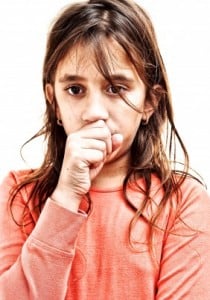
The study was conducted by study leader Dr. Julie Menella from the Monell Chemical Senses Center in Philadelphia, and her colleagues. Former studies have indicated that adults who smoke have a damaged cough reflex, making them more susceptible to respiratory illnesses; researchers hypothesized that the same rang true for children exposed to secondhand smoke.
To test their theory, Menella and her colleagues recruited 36 healthy children between the ages of 10 and 17 years of age; 17 had been exposed to smoke in the home, 21 had never been exposed. Researchers then gave each of the children nebulizer treatments that were filled with capsaicin (the burning ingredient in chili peppers, and a potent chemical often given to illicit coughing). Increasing amounts were given until the children gave two coughs. Researchers deemed this the “cough threshold.”
Children who had been exposed to secondhand smoke required twice as much capsaicin than children who had not been exposed to secondhand smoke. Parents were also tested, and the same results were achieved. This essentially means that adults who smoke, and the children exposed to their secondhand smoke, are less sensitive to irritating environmental stimuli.
“Cough protects our lungs from potentially damaging environmental threats, such as chemicals and dust,” Mennella said. “Living with a parent who smokes weakens this reflex, one of the most vital of the human body.”
The decreased sensitivity to environmental stimuli could play a part in the increased risk of respiratory illness in children who are exposed to secondhand smoke. This is because their lungs are not clearing themselves of foreign pollutants as often or at the same concentration as children who are not exposed to secondhand smoke.
“This study suggests that even if an exposed child is not coughing, his or her respiratory health may still be affected by secondhand smoke,” said study co-author, Dr. Paul Wise.
Study authors are currently seeking funding to determine if the cough reflex impairment in exposed children is reversible and how (or if) this relates to the age when secondhand exposure stops.
Researchers are also planning to conduct further experimentation to help determine whether or not the impaired cough reflex in exposed teens makes smoking experimentation less unpleasant, which may account for some of the reason that these teens are at a higher risk of smoking than teens not exposed to secondhand smoke.
Related Articles
- RECALL: 5,600 Kickboard Children’s Micro Mini Scooter Due to Laceration Hazard
- Recommendations for Cutting Umbilical Cord Expected to Change for UK Midwives
- Judgment of Character in Infants Now Up for Debate






